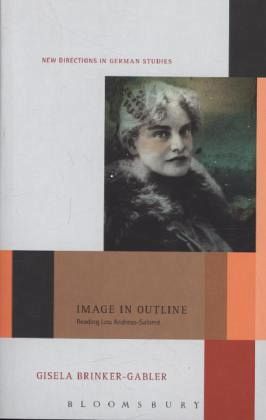Nicht lieferbar

Image in Outline
Reading Lou Andreas-Salomé
Versandkostenfrei!
Nicht lieferbar
Weitere Ausgaben:
Image in Outline introduces the reader to Lou Andreas-Salomé's significant engagement with modern thought. Through detailed explorations o fsome of her major texts, Brinker-Gabler examines Andreas-Salomé's contributions to contemporar ydiscourses on meaning, perception, memory, and the unconscious. Situating her analyses within Andreas-Salomé's historical, social, and intellectual contexts, this new reading utilizes a theoretical frame informed by thinkers such as Benjamin, Bergson, and Freud, and current theoretical perspectives by Irigaray, Grosz, and Kristeva. Brinker-Gabler argues that ...
Image in Outline introduces the reader to Lou Andreas-Salomé's significant engagement with modern thought. Through detailed explorations o fsome of her major texts, Brinker-Gabler examines Andreas-Salomé's contributions to contemporar ydiscourses on meaning, perception, memory, and the unconscious. Situating her analyses within Andreas-Salomé's historical, social, and intellectual contexts, this new reading utilizes a theoretical frame informed by thinkers such as Benjamin, Bergson, and Freud, and current theoretical perspectives by Irigaray, Grosz, and Kristeva. Brinker-Gabler argues that Andreas-Salomé - committed as she was to the"double direction" of rigorous thought and individual nuancing - refocused dominant visions of gender, sexuality, culture, religion, and creativity through a female lens. In a "disenchanted world" (Weber), Andreas-Salomé offered an image epistemology or"aesthetics of b(u)ilding," as Brinker-Gabler calls it, that seeks to retrieve the multilayered pastembedded in individuals and cultural forms, thus providing positive accounts of sexual and cultural difference,experience, narcissism, and creativity in modern life.




